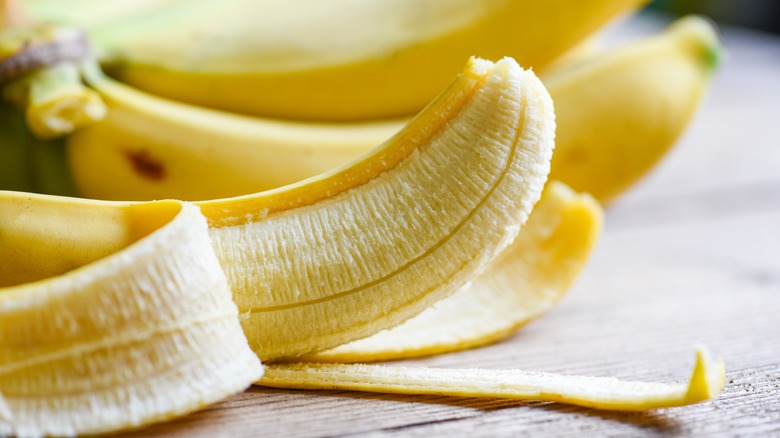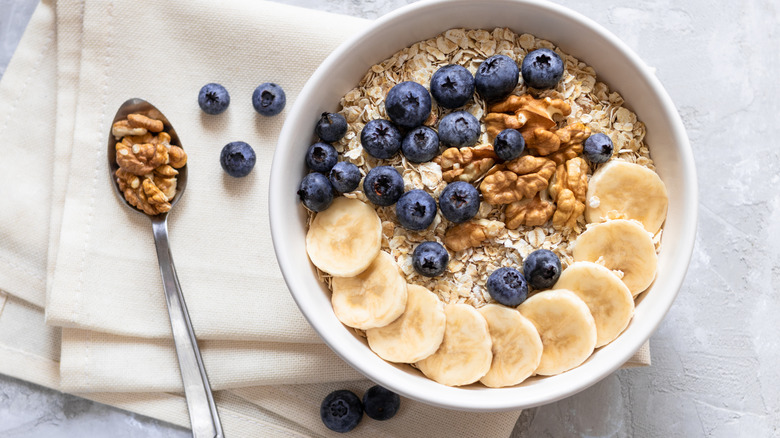Should You Eat A Banana Every Day?
You may have a number of health benefits in mind when you reach for a banana. Maybe you're jonesing for some extra potassium to keep up your cardiovascular health, or you're looking for an extra dose of energy-enhancing carbohydrates and vitamin B6, or perhaps you're hoping the fruit's tryptophan will convert into serotonin and lift your mood (via the BBC). The Southeast Asian-spawned fruit, which can now be found around the world, and which, per Rainforest Alliance, is technically a "giant herb related to lilies and orchids," is the nutritionally minded person's answer to a healthy breakfast or snack, whether it's on its own, sliced into a bowl of oats, or baked into a loaf of banana bread.
But just as you may be surprised to learn how bananas really got to your table, you may not have heard the whole story behind the nutritional elements of the fruit. If you're eating a banana right now and you know your body loves it, keep calm and snack on. But if you've ever felt weird after eating a banana, keep reading.
There are some potential downsides to eating bananas
While the health benefits mentioned above are backed up by nutritionists and dietitians far and wide, bananas are no exception to the platitude that everything is better in moderation. Eat This, Not That! cites Amber Pankonin, MS, RD, who says eating a banana for breakfast may not satisfy your hunger. "Personally, I prefer to pair bananas with a protein source like cheese or peanut butter so that I can make sure to balance the carbohydrate content with a protein source," she says.
For those with high potassium levels or kidney diseases, bananas' most commonly lauded chemical element can potentially cause lethal harm. "This is because those with advanced kidney disease cannot properly remove potassium from the blood," says Pankonin. According to Harvard Medical School, those who take angiotensin-converting enzyme (ACE) inhibitors, which raise blood potassium levels, should avoid bananas for the same reason as those with kidney problems. She adds that bananas can also lead to uncomfortable symptoms like gas and bloating due to the fruit's high levels of "soluble fiber and a natural sugar alcohol." Finally, Pankonin tells the outlet that bananas may not be the ideal choice for those following low-carb diets.
The verdict, in a nutshell, is that you know your body best, but the next time you're craving a banana with your morning coffee, you might want to doctor it up with some yogurt or nut butter. And if you have kidney problems, it's best to discuss your banana intake with your doctor.

